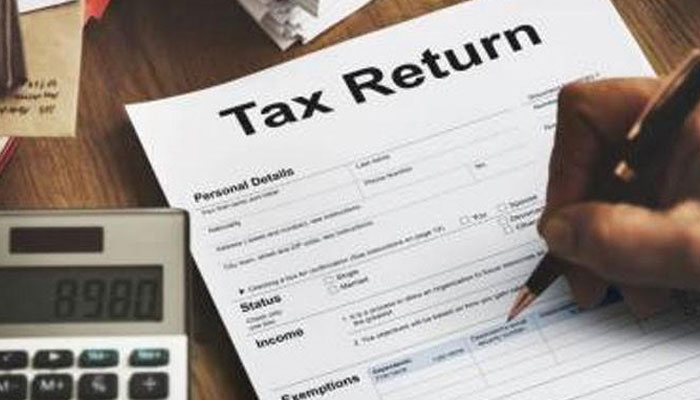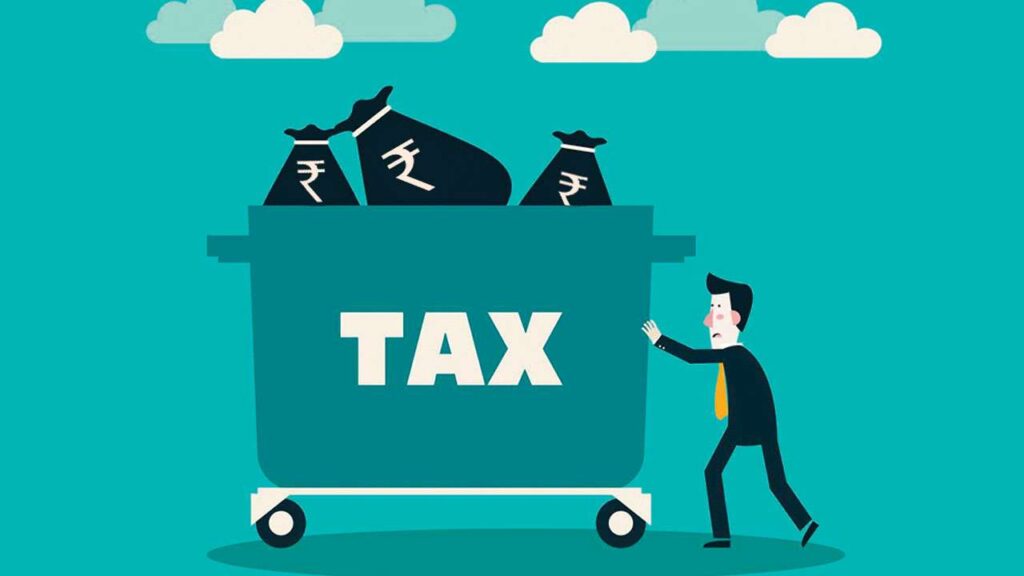ISLAMABAD: The federal cabinet has approved introducing a new budget to slap taxes amounting to Rs140 billion to meet a condition of the International Monetary Fund (IMF), as the cost of tax exemptions swelled by another one-fifth to nearly Rs1.4 trillion in the current fiscal year.
The cabinet meeting, chaired by Prime Minister Imran Khan, approved the Income Tax Second Amendment Act 2021 after resisting the IMF demand for over a year.
The cabinet also approved the State Bank of Pakistan Amendment Act and State-owned Enterprises Act to meet another two prior actions of the IMF.
The IMF had stalled the $6 billion programme over a year ago after the prime minister refused to increase electricity prices and introduce a mini-budget. Imran Khan has now accepted both of these demands along with about 30 other major conditions to restore the bailout package.
“The Federal Board of Revenue (FBR) had proposed withdrawing 80 income tax exemptions but the PM rejected the withdraw of at least four exemptions,” a cabinet source said.
“Rs70 billion to Rs140 billion income tax exemptions have been withdrawn and the exact amount will depend on how the economy performs next year,” said FBR Chairman Javed Ghani.
A new Schedule 13 has been introduced in the tax law to protect income tax exemptions of about 60 non-profit organisations while the tax regime of the NGOs has been completely overhauled.
“The premier rejected to withdraw Special Economic Zone income tax exemptions, text boards income tax exemption, corporate agriculture enterprise income tax exemption and renewable energy projects tax exemptions,” said the sources.
The premier said the corporate agriculture, special technology zones and SEZs are the flagship initiatives of the PTI government, which will be protected in the budget.
Also, those Independent Power Producers (IPPs) that will sign agreements with the government by June this year will be allowed to avail income tax exemptions.
The income tax exemptions to those housing units that will be completed by June 2024 under the PM’s scheme will continue to avail their income tax exemptions.

The FBR chairman told the federal cabinet that the cost of tax exemptions has jumped to Rs1.4 trillion in the past eight months — an increase of Rs232 billion or 20%. This cost was Rs1.15 trillion by June last year.
The cabinet was told that the cost of tax exemptions was now equal to 2.9% of the Gross Domestic Product, which was about 2% in India, 1.9% in Bangladesh and 1% in South Korea.
The government did not impose any new tax and instead gave Rs40 billion relief in the last budget, said Javed Ghani while addressing a press conference along with Minister of Finance Dr Abdul Hafeez Shaikh. Ghani said the new tax measures will be applicable from July.
“We want to enhance reliance on direct taxes, therefore, part of Rs380 billion income tax exemptions have been withdrawn. The corporate sector is the richest sector of the economy,” said Ghani, who is retiring next month.
The income tax exemptions have been reduced to have a uniform tax system, said Dr Abdul Hafeez Shaikh. The minister said the corporate sector income tax exemptions have been reduced.
Pakistan and the IMF reached staff level agreement last month for approval of the second to fifth reviews and release of next loan tranche of $500 million, subject to the fulfillment of certain conditions.
“The objective of tax reform is to make the tax code simple, plug existing loopholes in the system, reduce discretionary powers of tax collectors and tax practitioners and introduce automation to ensure transparency of the tax system,” said Prime Minister Imran Khan.
The premier stated that the tax regime should be reformed and structured in such a way that it facilitates businesses and helps the economy to grow.
The FBR has estimated the total cost of tax exemptions at Rs1.15 trillion, including Rs378 billion income tax exemptions. The exemptions from total income amounted to Rs212 billion and the cost of tax credits is Rs104.5 billion.
Major exemptions withdrawn
The income tax exemptions available to private equity funds and venture capital funds have been approved to be withdrawn. The collective investment schemes will also be subject to normal tax.
In a major proposal, the cabinet approved to withdraw income tax exemption on inter-corporate dividends, which will affect Pakistan’s major conglomerates. The dividend incomes of Saudi Arabia, Libya and Kuwait drawn from their investments will be subject to normal tax.
The government has approved to withdraw the income tax exemptions available to the IPPs. The existing IPPs as well as those that would sign the agreements by June this year would continue availing the exemptions due to sovereign guarantees.

Similarly, tax credit for investment in balancing, modernization and replacement of plant and machinery by the manufacturing sector that caused Rs65 billion revenue losses last year would not be extended beyond June 30.
The tax exemptions available to Real Estate Investment Trusts have been withdrawn. The up to 20% tax credit on listing of new companies in the stock market has been approved to be withdrawn.
The concessionary income tax regime, available to PM’s Low Cost Housing scheme would be available till June 2024 and any project that will be set up after that would not be entitled to claim the concessionary rates, said the sources.
It was decided that the income tax exemptions available to oil refinery investments would expire by the end of this calendar year. The decision to continue these concessions for another nine months was taken to get time to finalize an oil refinery deal with Saudi Arabia.
The NPO regime will be reformed to stop tax avoidance by the NPO sector. Instead of claiming tax expenditures, these NPOs would be given tax credits.
It was also decided that the direct deduction of donations paid to the NPOs would be withdrawn. However, tax credit equal to omitted exemption will be offered. The tax exemption on income of Sukuk bonds and the profit on debt paid by an industrial company on foreign loans have been withdrawn.
The income from sale of immovable property by the Real Estate Investment Trust has been withdrawn. Also, the income of modaraba other than manufacturing or trading modaraba will be now subject to normal tax.

Later briefing the media about the decisions of the cabinet meeting Minister for Information and Broadcasting Senator Shibli Faraz said the draft State Bank of Pakistan (Amendment) Bill, 2021, which would now be tabled in parliament, was aimed at ensuring operational and administrative autonomy of the SBP, and increase its scope and powers.
He said the SBP as a regulator was responsible to control inflation but due to lacunas in the act, it was unable to perform in an effective manner.
The present government, he added, wanted to further empower the central bank so that it could take decisions independently without any outside interference. The past rulers used to get political advantages by misusing the SBP’s authority.
The step to empower the SBP would have far-reaching impact on the economy and it would help control inflation, the minister said.
Faraz said the cabinet approved in principle the draft law of Pakistan Institute of Education Act and sent it to the Cabinet Committee on Legislation.
The cabinet, the minister said, also approved the procedure for distribution of donations provided by the Government of Pakistan to the Saarc Covid-19 Emergency Fund.
It may be recalled that the cabinet had already approved the donation of $3 million to the fund.

At the time of setting up the fund, it was decided that the fund would be distributed through the Saarc Secretariat, but later it was decided by the Saarc member countries to distribute the donations provided by each member on a bilateral basis.
Therefore, the cabinet approved a new method of distribution of donations from Pakistan to the Saarc Fund in accordance with the new procedure.
He said the cabinet also approved Income Tax (amendment) 2021, which was an important piece of legislation to improve the tax network.
He said the cabinet discussed the reforms in state-owned enterprises (SOEs) and it was informed that steps had been taken to improve their performance.
The cabinet was informed that before the Pakistan Tehreek-e-Insaf (PTI) government came to power, the SOEs had registered Rs286 billion loss in the fiscal year 2017-18, which was halved to Rs143 billion in 2018-19.

He said the cabinet also gave its nod to the proposal of removing the Chief Executive Officer of Drug Regulatory Authority Sheikh Akhtar Hussain and appointment of Asim Rauf as its acting CEO.
The cabinet also gave approval to the protocols for amendment to the North-South gas pipeline agreement with Russia.
The cabinet, he said, approved the issuance of 41 new licences, revocation of seven licences, transfer of five and one case of jurisdiction in respect of Overseas Employment Promoters Licenses.
The cabinet was informed that the Bureau of Immigration and Overseas Employees had so far sent 1.1 million people abroad, he added.
Responding to a question, Shibli said the politics of opposition revolved around money, browbeating and extortion.
“An investor invests money, wins elections and then starts minting money after joining the government and patronizing various mafias.”










